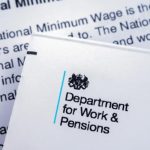Money expert Martin Lewis has delivered a fresh warning aimed at millions of people who use debit cards from major high street banks, including Barclays, NatWest, Lloyds, and Nationwide.
In his latest BBC podcast, the Money Saving Expert founder stressed that while many shoppers automatically choose their debit card out of habit, doing so could leave them worse off, and in some cases, pay higher interest charges than they would on a credit card.
Lewis said many people still believe debit cards are “safe” and credit cards are “dangerous”, but the reality is far more complicated.
He explained: “Many people tend to think credit card’s bad, debit card’s good, but it just isn’t that simple.
First of all, if you’re overdrawn, a debit card is a debit card too, and a typical high street overdraft is at 40% annual interest compared to a high street credit card at 25% annual interest. Overdrafts are more expensive than credit cards.
If you had to owe on one, you’d be best not to owe on either. If you had to owe on one, you would be better off owing on the credit card.”
The warning comes as households look for ways to save money amid rising living costs, something Lewis regularly advises on across a range of topics, including simple home energy tricks such as this £12 radiator hack that has helped many reduce their heating bills:
Debit cards can lead to costly overdraft fees
For many households, overdrafts can quietly become one of the most expensive types of borrowing. With several big UK banks charging around 40% AER, simply using your debit card while in the red can pile on extra costs surprisingly quickly.
Lewis warned that, compared with this, standard credit card rates, usually closer to 25% APR, can actually be cheaper, provided they are used responsibly. This is why he urges consumers to rethink which card they reach for when making everyday purchases.
Credit cards offer stronger protection under UK law
Another key point Lewis stressed is the additional protection credit cards offer, something debit cards simply don’t match.
Under Section 75 of the Consumer Credit Act 1974, credit card companies are jointly liable with retailers for purchases between£ 100 and £30,000.
This means shoppers have a legal right to claim their product back if a product doesn’t turn up, is defective, or isn’t as described.
Lewis explained: “On the credit card, plus you have extra protection when spending on a credit card, too.
Section 75 rules state, if you’re buying something that costs over £100 up to £30,000 and you pay for any of it, even a penny of it, on a credit card, the credit card company is liable for the entire amount and jointly liable with the retailer.
So if something goes wrong, you can go back to it. On debit cards, you only get charged back”.
Debit cards rely on chargeback, which is voluntary for banks and card companies, and not backed by law, meaning refunds can be hit or miss.
Rewards, cashback, and travel perks
On top of the legal protections, Lewis reminded listeners that many credit cards come with added perks, including cashback, reward points, or 0% foreign transaction fees.
For example, one listener named James commented: “Another advantage of some credit cards (eg, Nationwide) is 0% commission on purchases in Europe.”
Other followers noted how credit cards can be strategically managed through 0% balance transfers, giving people breathing space when dealing with large expenses or short-term cashflow problems.
Customers share frustrations over refund issues
Not all shoppers feel protected, though. One listener, Ryu, said: “About chargeback and sec 75 protection – that needs looking into.
There is no consistency between the banks and even within banks on how they interpret the same MasterCard/Visa rules.”
Some customers dealing with companies in administration, such as Ripple Energy, say getting refunds can feel like a “lottery”, showing how unpredictable debit card protection can be.
Lewis repeats: treat overdrafts as serious debt
This latest warning echoes a previous caution Lewis gave about the dangers of overdrafts.
He said: “I’ve got a warning. Many people think that when it comes to debt, debit cards are good, and credit cards are bad. But when it comes to debt, if you’re overdrawn, it’s credit cards bad, debit cards worse. Most overdrafts with virtually all high street banks and many others are at 40% AER.”
He urged anyone repeatedly dipping into their overdraft to treat it as a priority debt and work on reducing it as soon as possible.






